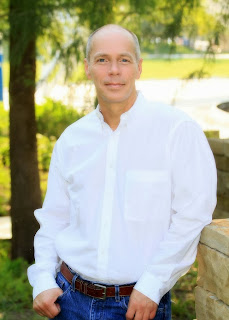One of the best parts of any writer's conference is meeting amazing agents and editors. I've tried to narrow my focus and I pitched two different agents last weekend. It can be surprising which ones you connect with and which ones you don't.
I pitched last year to an agent who requested my manuscript, but I never heard anything back. A year later I was ready to try again.
For someone who always enjoyed acting, pitching creates a unique sort of stage fright. Perhaps it's more intimidating in a one-on-one setting. Perhaps it's just knowing that these people took time out of their busy New York lives to listen to a ten-minute talk about a book they've never read by an author they've never heard of.
So after you get the best possible pitch written, after you practice and practice (Not too fast! Enunciate!), after all of that stress and anxiety you sit across from an agent and you sell your book. Or try to.
This year there were some pretty big names at Rose State. The two I was most interested in were Regina Brooks and Marcy Posner.
Regina is younger and has an interesting background (she worked as an engineer at NASA!) and for some reason, I just felt like we would click. On Friday, we were told to just sign with one agent to make sure everyone got a chance to pitch, so I signed up with Regina.
The next morning, I'm sitting outside of the designated room, waiting on my time when I notice the sign up sheets on the wall. When I'd checked earlier, all of Marcy Posner's slots were filled. Oh well, I thought. She wasn't my first choice anyway. But now, there were three blank spots where someone had whited-out names. What the heck. It can't hurt to pitch twice. I signed up for Marcy.
With Regina, I started out a little rocky. There was no one to keep track of the times and I wasn't sure if I was supposed to go on in or wait until I was called, so I missed the first few minutes of my allotted time. She was very nice and I gave my pitch (which was a little rushed). She listened politely and pointed me towards a contest her agency does for YA books. She also gave me the name of another agent in her company that might be interested. Those all sound positive, yes, but the reception was less enthusiastic than I'd hoped for. To be honest, I was pretty disheartened.
So I went to lunch and came back. By the time of my next appointment, I was feeling pretty laissez faire. What happened, happened. It was good practice.
This time, everything seemed to work out perfectly. My appointment was at the beginning of a chunk of times so there was no one in front of me. Marcy was already seated and seemed a little bored, so I went right on in. This time, my pitch was near perfect. It came out more conversational and Ms. Posner and I ended up discussing the book for quite a while. She asked me questions about myself, about my writing process and what my goals were. We even chatted about various television shows and books we liked. Turns out she's a big fan of dystopic/post-apocalyptic fiction. Even though we started early, we ended up going over our time limit by five or six minutes!
But I think the best thing was that she said she'd get back to me within a couple of weeks.
After waiting months and months for the first agent I pitched to (who still has never contacted me back), it was refreshing to speak to someone who was serious about me.
While it's still very possible she may not be interested in representing my book, it was a great experience. So now I sit here, refreshing my email every five minutes, cautiously optimistic.
Maybe she'll be the one.














